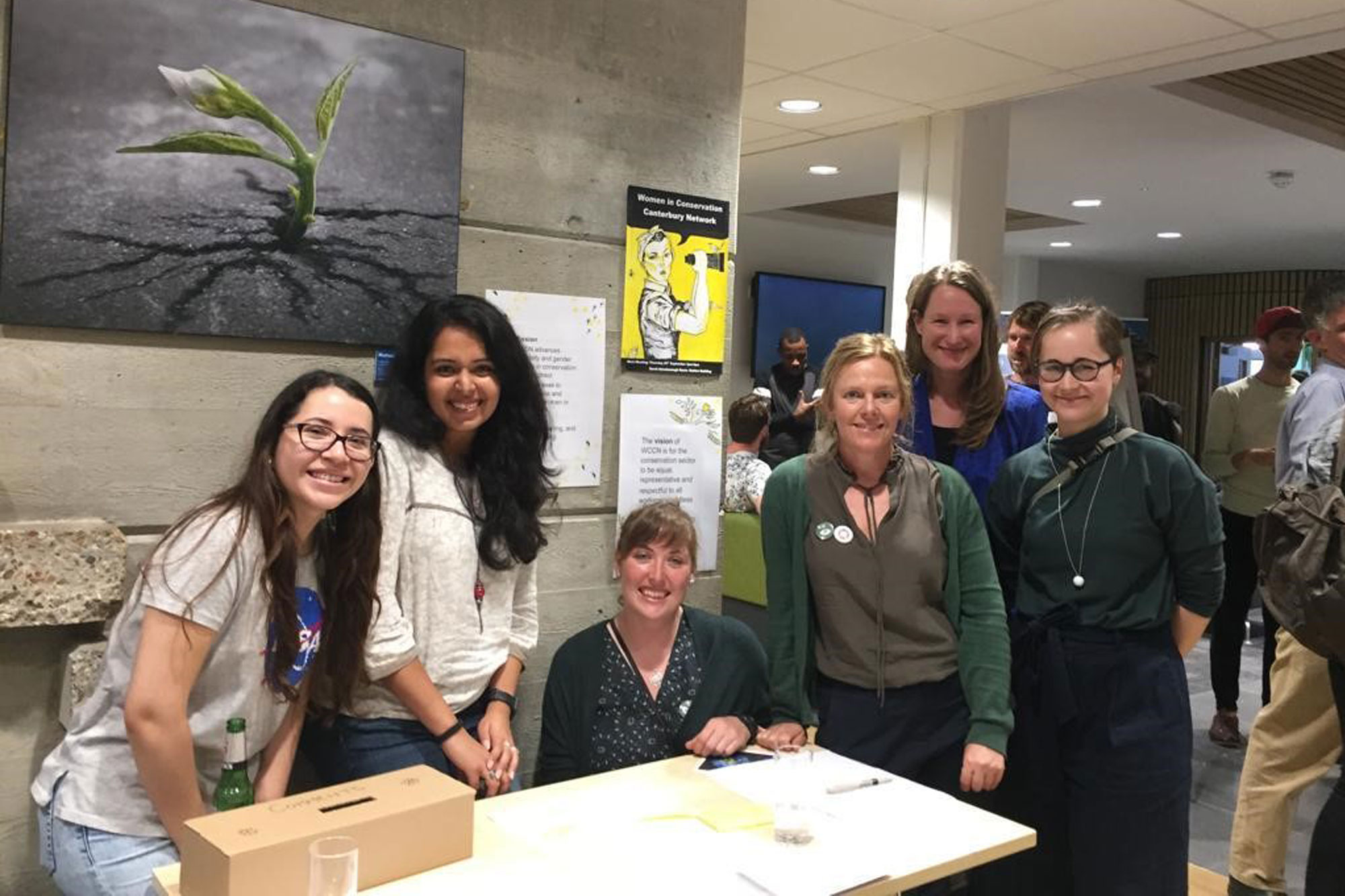Conservationists are united by a shared dedication to nature and aspiration to make a positive change for the planet. However, the work can be a solitary and lonely experience, often carried out in remote locations or alone at a desk. It is therefore unsurprising that a feeling of isolation or disconnection can be a challenge for many in the field. Additionally, women in conservation face further, distinct hurdles.
Megan Jones and Jennifer Solomon, scholars at the Colorado State University, USA, recently explored the pervasive, gender-related challenges that women conservation leaders experience in their careers, including salary inequality and both formal and informal exclusion. They also highlighted the crucial role of structural supports (e.g. formal opportunities like mentoring programmes, coaching or training) and supportive relations (e.g. with leaders and peers) in mitigating gender-related challenges.
The Women in Conservation Canterbury Network (WCCN) was formed in April 2019 for those who identify as women and work towards conservation goals to offer meaningful peer support.
“Our mission is to advance inclusivity and gender equality in conservation,” explains Thirza Loffeld, studying for her PhD in Biodiversity Management at the Durrell Institute of Conservation and Ecology (DICE). “We provide the space and support to connect, share information and build our capacity. My fellow DICE PhD student Dominique Gonçalves and I started WCCN because we felt such a space was lacking: we wanted to support other women in overcoming hurdles and help each other thrive in our personal and professional missions. We spent several months developing our WCCN mission and vision as a group and we are proud of our achievements this first year.”
Natalie Yoh and Anna Jemmett, WCCN members and PhD researchers at DICE, produced a short video celebrating the achievements of WCCN thus far.
“Since our formation, we have participated in fourteen monthly meetings, hosted three Action Learning Workshops led by a professional coach, and organised an Autumn Wellbeing Walk through the woodland paths of the Kent campus,” highlights Natalie.
Shaleen Attre, WCCN member who has just started her PhD at DICE, believes, “Women in conservation have some unique challenges that they have to go through, with ‘not being heard’ as a common issue spanning different demographics and cultures. Being part of something like an Action Learning Workshop helped us communicate better and really listen. This proactive method helped us learn how to focus and delve into the issue, whilst providing a secure space for every voice in the room to be heard, without anyone being overshadowed.”

Together with students in social anthropology, WCCN also hosted an Encounters in the Field workshop, which provided the opportunity for postgraduates at the School of Anthropology and Conservation (SAC) to openly and informally converse about the challenges they had faced during fieldwork. During this workshop, participants found common ground and support within the SAC community. This event was linked to the development of the Procedural Guide for Preventing and Dealing with Behavioural Misconduct during academic activities in a non-University setting by Professor of Biological Anthropology, Tracy Kivell, and advised upon by WCCN.
Another workshop was led by WCCN member and Lecturer in Conservation Science at DICE, Dr Janine Robinson, who brought in career-coach and psychologist, Katie Hilton. This event was open to all postgraduate students at SAC and Katie helped them unlock their potential by reflecting on their strengths.
As WCCN embarks upon their second year, the group will continue working towards their founding vision: to foster a conservation sector which is equal, representative and respectful to all workers regardless of gender. WCCN will work to continue growing their network (it currently comprises 66 members across four continents) whilst providing guidance on inclusivity when designing conservation projects, promoting safety in the field for conservation students, fostering a dialogue on motherhood and conservation and much more!
Let’s make conservation a field welcome to all!
WCCN is a community that welcomes women of all ages, ethnicity, and sexual orientation.
The group holds a monthly meeting on the last Tuesday of each month so, if this sounds like something you would like to get involved with, be sure to come to the next meeting on 27th October.
You can find out more on the WCCN Facebook group.
Text by DICE alumna Sarah Humphrys.

